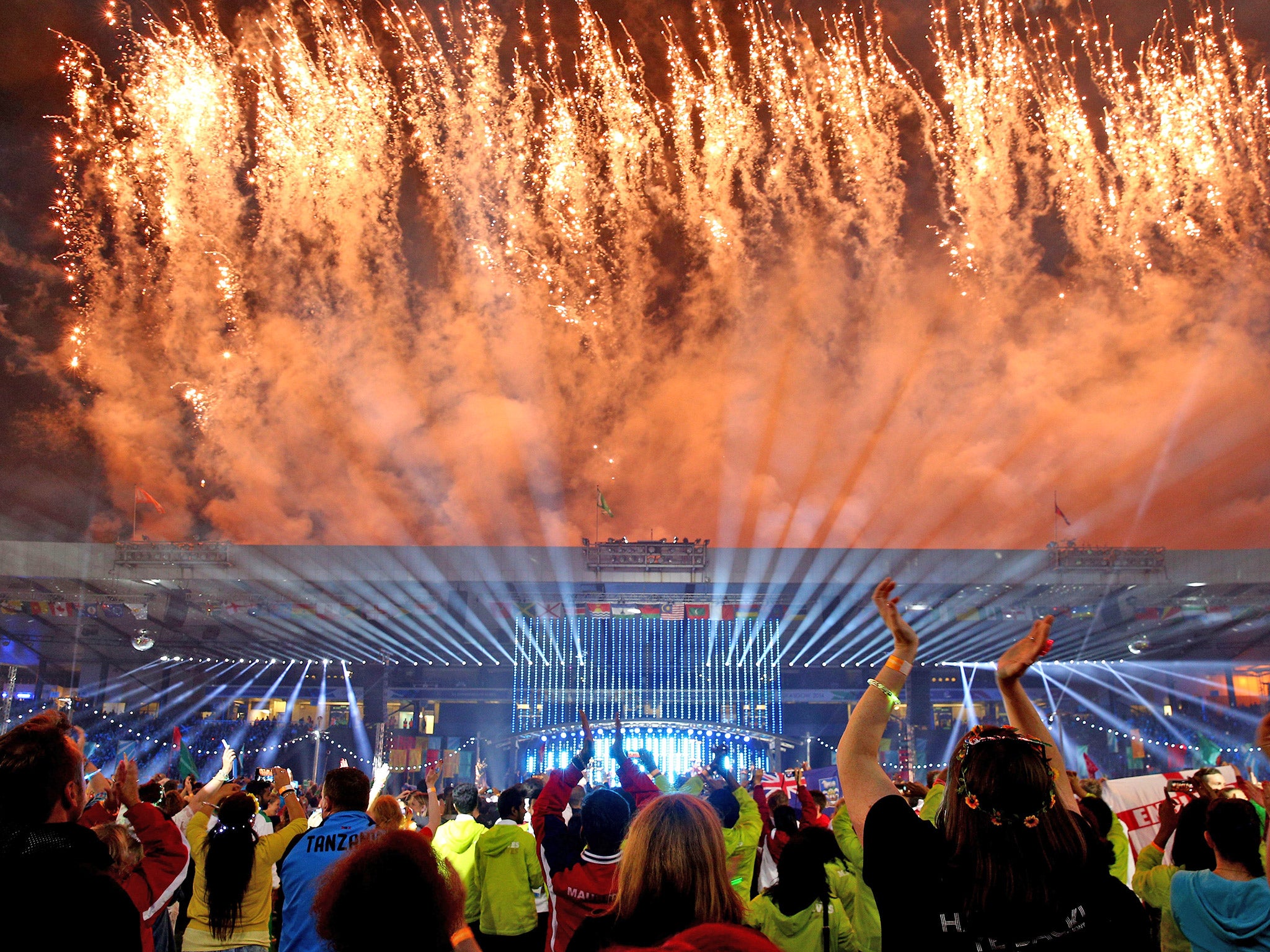Commonwealth Games: Glasgow event provided £100m boost to city's economy – but barely benefited Scotland as a whole
A new report suggests that the public money poured in would have had roughly the same economic impact if it had been spent on other things

Last year’s Commonwealth Games in Glasgow provided a £100 million boost to the city’s economy but Scotland as a country did not enjoy any significant financial advantages, according to official estimates published on 23 July.
The Scottish Government’s latest legacy report on the Games, released to coincide with the one-year anniversary of the opening ceremony, suggests that the £425m of public money poured into the tournament would have had roughly the same economic impact if it had been spent on other things.
“The results of this analysis suggest at the Scotland level, the immediate economic impact of the delivery of the Games is broadly similar to the impact of…standard government expenditure,” it states.
However, it says the Games added £100m to the value of Glasgow’s economy, thanks to the number of visitors drawn to the event and the extra money that was directed into the city by Holyrood, which may otherwise have been sent elsewhere.
The report also points out that the economic legacy of the Games may improve with time, as existing arenas and stadia are used to host other events and the benefits of regeneration and improved infrastructure are felt. So far, 45 extra events have been secured, carrying an estimated economic impact of around £18.5m.
As well as the financial impact of the Games, the report also considers the effect of the event on tourism, regeneration, civic pride and culture. Around 690,000 visitors were attracted to Scotland as a result of the Games, supporting 2,137 jobs and contributing £73m to the country’s economy, it says.
Although Scotland fielded its largest ever team at a Commonwealth Games in 2014, winning a record 53 medals in the process, the report concludes that it is “too early to say” whether increases in sporting participation among the Scottish public recorded in 2012 and 2013 have continued in the wake of the event.
Describing attempts to increase people’s physical activity as a “long term generational challenge”, it adds: “Population activity levels are affected by a range of individual and environmental factors. The wider trends in transport, occupational changes and technological changes are challenging.”
However, it says that the early signs are promising, with increases in the number of people taking part in sports such as netball and gymnastics. Attendance at leisure facilities has also
increased year on year in Scotland since 2010/11, with Glasgow’s figures above the average.
The report adds that residents of Glasgow’s East End, where much of the regeneration activity was focused, had welcomed the “physical improvements” to their neighbourhoods and felt safer living there than they had before. While in 2012 only 55 per cent said the sports facilities in their area were “very” or “fairly” good, this figure rose to 71 per cent in 2014.
Nicola Sturgeon, Scotland’s First Minister, will mark the one-year anniversary by attending the opening of Glasgow’s Crownpoint Sports Complex, which has inherited the running track used at Hampden Park stadium during the Games. Around 350 young people will also taking part in the opening event of the city’s Anniversary Games, a free 11-day sporting festival.
Ms Sturgeon said the Games were about “far more than two weeks of great sport”, pointing to the creation of 60 legacy programmes as evidence of its impact. “Through these schemes we are funding, encouraging and promoting programmes large and small in communities right around the country, and ensuring that the benefits of the Games will be felt for many years to come,” she added.
Subscribe to Independent Premium to bookmark this article
Want to bookmark your favourite articles and stories to read or reference later? Start your Independent Premium subscription today.

Join our commenting forum
Join thought-provoking conversations, follow other Independent readers and see their replies